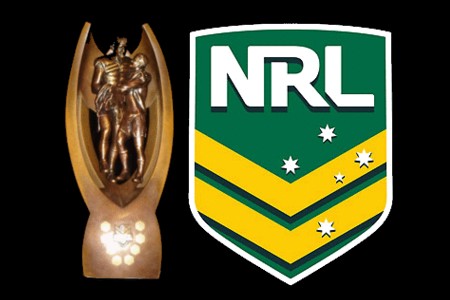When an NRL club signs a highly paid player to a long term contract, they are taking a risk.
It doesn’t matter who that player is or what they have done in the past, committing so much money to one player and hoping that he is still performing at a high level at the end of that deal is a highly risky move.
Sometimes when a team makes this commitment, it doesn’t always turn out well. The player they sign up to a long term deal either loses form or gets struck down with injury. This see’s certain NRL clubs carrying a player with a big salary for many years. Unless a club can find another team to take that player off of their hands, usually as they continue to pay a portion of their salary, they are stuck with them.
So what if under NRL Salary Cap rules a club could pay out a players contract in full and not take a hit against their salary cap?
Over the previous decade in which the NRL was under funded by terrible media deals, the NRL Salary Cap was set very low. With the salary cap set so low the NRL was forced to heavily police and regulate the salary cap as any advantage a team could get through loopholes could see a team becoming completely dominant over everyone else and destroying the level playing field the NRL had worked hard to achieve.
Just look at what was able to be achieved with a few free boats and some Harvey Norman vouchers…
One loophole the NRL was keen to avoid was the paying out of contracts. If a team pays out a players contract the amount that they have paid out has to count against their salary cap. That all but forces teams to carry players who are either under performing or injured because no club can afford to carry dead, unused space in their salary cap and hope to perform at a high level.
Now that the NRL has moved into the new broadcasting agreement and the salary cap is starting to rise, teams are finding they have a heap of salary cap money to spend and not enough talent to spent it on. We are now seeing around the league that a number of teams have huge amounts of salary cap space that they may end up carrying into the next season or two. Dead salary cap space that will go unused.
Now that the game is not living on such a strict budget, and cap space isn’t as rare as hens teeth, why shouldn’t teams be allowed to buy out players and not have them count against their salary cap?
Would it effect anyone else if the Wests Tigers were allowed to buy out Adam Blair’s contract for instance? Would they be getting some sort of outrageous advantage over other teams? Are there not teams all over the league that would kick a puppy dog in the face to get rid of a bad contract they signed without any salary cap hit?
Imagine if the Brisbane Broncos could get rid of Scott Prince or Peter Wallace without taking a salary cap hit? How many years ago would Roy Asotasi have been pushed out the door at South Sydney if they were able to drop his massive contract that he signed with them when he left the Bulldogs? If you had this system in place the Penrith Panthers could have released Michael Jennings….after selling Panthers League club to pay for it anyway.
Buying out players contracts would allow teams to move on from mistake they have made. Some would argue though that many of the mistakes teams make are through poor management, and that they should be forced to live with these mistakes rather than being able to buy out a player and wiping the slate clean. You have to wonder though, is that the ideal scenario for the player involved? Wouldn’t Adam Blair for instance be better off with a change of scenery right now as much as the Tigers would be better off with having him off of their books?
You also have to consider what happens to a player once they are released. After all, if the Wests Tigers released Adam Blair after last season and he went and signed for the NRL’s minimum wage with the Melbourne Storm, all of a sudden you are effecting the ability of the salary cap to equalize talent across the competition.
Many clubs simply could not afford to buy out poor contracts. As I mentioned earlier, there is no way the Penrith Panthers could have come up with the millions of dollars required to buy out Michael Jennings contract at the end of last season. Maybe you would need to bring in a rule where by if a player signs on with another NRL clubs, the team that released him only needs to pay the difference between his previous contract amount and his new contract amount. As stated earlier though, you can be sure Michael Jennings would be earning the NRL’s minimum wage at the Roosters right now if that was the case.
Releasing players could not be allowed to becoming a regular occurrence It should be a last resort in a situation where a team and a player agree that the best thing for both parties is to part way.
Maybe a team could only release one player in this manner every five years and have them not count against their salary cap. This would mean clubs would only pay out their very worst contracts and we wouldn’t see the player market flooded with players looking for an NRL minimum wage deal because they already have a wallet full of money from the team that just payed them out.
The days of salary cap space being a rare commodity for a team to have are long gone. Where five years ago cap space of $100,000 would have been huge for any team to have, now it will barely buy you anything. This means that some of the more restrictive rules the NRL had in place in the past could be removed and not have any huge effect on the salary caps ability to equalize talent across the competition.
While every change to the salary cap can have a knock on effect in other areas, I don’t think anyone would disagree that it would be a good thing if certain teams were able to move on from previous mistakes and players could move into new environments to re-establish their playing careers.
I’m almost certain that the Wests Tigers and Adam Blair would agree with me…









